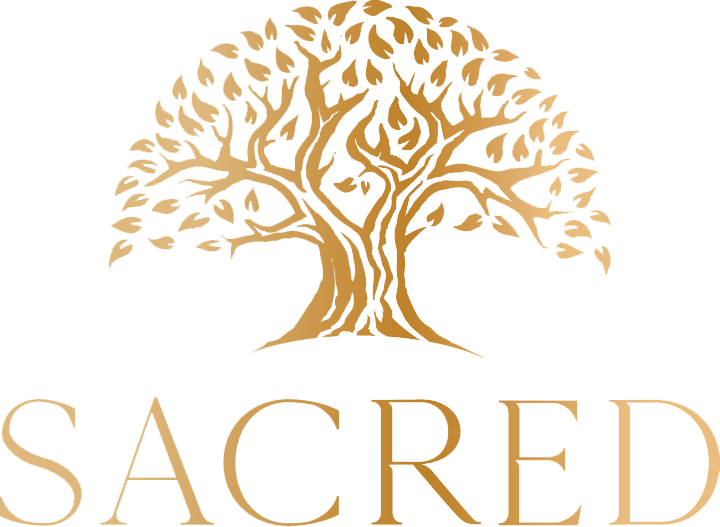Frequently Asked Questions
Sidr honey is expensive because of its rarity, purity, and unique production process. Here's why:
1. Limited Harvesting Period: Sidr trees in Yemen bloom onlytwicea year, providing a short window for honey production.
2. Exclusive Origin: Our authentic Sidr honey comes from regions like Yemen's Wadi Daw’an, where the trees grow wild and organically in unpolluted environments.
3. Labor-Intensive Methods: Our beekeepers use traditional methods passed down for generations, often avoiding modern techniques that could compromise quality.
4. Unparalleled Quality: The honey is rich in nutrients, has a unique taste, and is highly valued for its antibacterial and medicinal properties.
5. High Demand: Sidr honey’s reputation as one of the finest honeys in the world increases global demand, driving up prices.
6. Purity Standards: Genuine Sidr honey, like Sacred Honey, is rigorously tested (e.g., C.4 sugar test) to ensure it is free from adulteration, unlike cheaper alternatives on the market.
This combination of rarity, effort, and quality makes Sidr honey a luxury item worth the cost.
The C4 sugar test is currently the most reliable way to confirm honey’s purity. It detects C4 sugars, like those from corn or cane syrup, which indicate adulteration. Always request a recent test to ensure the results reflect the honey’s current state.
Both Sidr and Manuka honey are exceptional but serve different purposes. Sidr honey is prized for its rich taste, rarity, and natural antibacterial properties, while Manuka honey is known for its high MGO levels and medicinal-grade antibacterial strength.
We’re sold out of our Yemeni honey because we refuse to compromise on quality. Unlike others, we don’t accept fake or low-quality honey. We only trust our small but growing co-op of beekeepers, meaning our supply is always limited but truly authentic.
For those who understand the value of purity, we promise it’s worth the wait
It is best to store honey in a cool, dry place away from direct sunlight. There's no need to refrigerate it; room temperature storage helps maintain its consistency and beneficial properties.
It's recommended not to give honey to babies under 1 year old due to the risk of botulism, a rare but serious illness caused by bacteria that can be found in honey. After 1 year, a baby’s digestive system is mature enough to handle honey safely. Always consult your pediatrician if you have concerns.
Sidr honey is a premium, monofloral honey produced from the nectar of the Sidr tree (Ziziphus spina-christi), which grows primarily in Yemen, parts of Saudi Arabia, and other regions in the Middle East. This honey is highly prized for its exceptional purity, rich flavor, and medicinal properties. Sidr honey has a dark amber color and a distinctive, complex taste that blends floral, herbal, and slightly sweet notes.
It is known for its potent antibacterial, anti-inflammatory, and antioxidant properties, making it highly valued for promoting digestive health, boosting the immune system, and supporting overall well-being. Sidr honey is also considered one of the most luxurious and rare varieties due to its limited harvest and the specific conditions required for its production.
Sidr honey can be used on wounds but it's crucial to ensure its purity with a c4 sugar test first. It is known for its powerful antibacterial and anti-inflammatory properties, which can help promote healing and reduce the risk of infection. Sidr honey has been traditionally used for wound care, burns, and skin conditions due to its natural healing abilities.
When using Sidr honey on wounds, make sure to clean the wound properly before applying the honey, and cover it with a sterile bandage.It’s always a good idea to consult with a healthcare professional,especially for larger or more serious wounds.
Yemeni Sidr Honey is produced from the Sidr tree in Yemen, known for its rich, complex flavour with floral and herbal notes. It is highly valued for its potent medicinal properties, including its antibacterial, anti-inflammatory, and antioxidant effects. Sidr honey is used for wound healing, gastrointestinal inflammation, and immune support, and is considered rare and pure due to its limited harvest.
Australian Manuka Honey comes from the Manuka tree in Australia, renowned for its strong antibacterial properties, driven by high levels of Methylglyoxal (MGO). It is also used for wound healing, infection treatment, and gut health, with its medicinal strength measured by the UMF rating while Sidr is measured by its T.A rating.
Both honeys are powerful medicinal options.
The T.A. rating (Total Activity) is a measure of the overall antibacterial potency of honey, particularly used for varieties like Sidr honey. It indicates the level of antibacterial activity present in the honey, which is crucial for its medicinal properties.
A higher T.A. rating signifies stronger antibacterial properties. For example, a T.A. rating of 10+ means the honey has significant antibacterial activity, while a rating of 20+ or higher indicates even more potent medicinal qualities.
Manuka honey is a type of monofloral honey produced by bees that pollinate the Manuka tree (Leptospermum scoparium). It is distinguished from other honeys by its high levels of methylglyoxal (MGO), which contribute to its potent antibacterial properties.
MGO (Methylglyoxal) is a naturally occurring compound found in significant amounts in Manuka honey. It is a key factor contributing to the honey's strong antibacterial properties. MGO is formed during the process of nectar collection by bees from the Manuka flower, and its concentration is one of the primary indicators of the honey's potency.
The higher the MGO content, the stronger the antibacterial activity of the honey. This is why MGO levels are often used to grade Manuka honey, with higher MGO ratings signifying stronger medicinal properties, particularly for wound healing, infection prevention, and gut health.
Manuka honey is known for its antibacterial, antiviral, anti-inflammatory, and antioxidant properties. It has been used to support wound healing, soothe sore throats, prevent dental plaque, and aid digestive health.
Unlike regular honey, Manuka honey contains higher concentrations of MGO and unique phenolic compounds, enhancing its antimicrobial and therapeutic effects. Additionally, genuine Manuka honey is often graded using the Unique Manuka Factor (UMF) rating, which measures its purity and quality.
Manuka honey can be consumed directly, added to foods and beverages, or applied topically to the skin. It's commonly used as a natural sweetener, in skincare routines for its antimicrobial properties, and as a soothing agent for sore throats.
Jarrah honey is a monofloral honey produced by bees that forage on the nectar of the Jarrah tree (Eucalyptus marginata) native to Western Australia. It is celebrated for its rich, dark color and distinctive caramel-like flavor.
Jarrah honey offers several health benefits, including:
Antioxidant properties: It contains high levels of antioxidants, which can help combat oxidative stress and support overall health.
Antibacterial and antifungal effects: Jarrah honey has significant antimicrobial properties, making it effective in treating skin infections, wounds, and sore throats.
Digestive health support: It acts as a natural prebiotic, promoting the growth of beneficial gut bacteria and aiding digestion.
Jarrah honey can be used in various ways:
As a sweetener: Add it to teas, smoothies, or spread it on toast.
In skincare: Apply it topically to wounds, burns, or acne to leverage its healing properties.
For digestive health: Consume a spoonful daily to support gut health.
Jarrah honey distinguishes itself from other honeys through its higher antioxidant content and potent antimicrobial properties. These unique characteristics make it particularly effective in wound healing and skin care applications.
Blackbutt honey is a monofloral honey produced by bees that forage on the nectar of the Blackbutt tree (Eucalyptus patens) native to Western Australia. It is celebrated for its rich, dark color and distinctive flavor.
Blackbutt honey offers several health benefits, including:
Antioxidant properties: It contains high levels of antioxidants, which can help combat oxidative stress and support overall health.
Antibacterial and antifungal effects: Blackbutt honey has significant antimicrobial properties, making it effective in treating skin infections, wounds, and sore throats.
Digestive health support: It acts as a natural prebiotic, promoting the growth of beneficial gut bacteria and aiding digestion.
Blackbutt honey distinguishes itself from other honeys through its higher antioxidant content and potent antimicrobial properties. These unique characteristics make it particularly effective in wound healing and skin care applications.
Blackbutt honey can be used in various ways:
As a sweetener: Add it to teas, smoothies, or spread it on toast.
In skincare: Apply it topically to wounds, burns, or acne to leverage its healing properties.
For digestive health: Consume a spoonful daily to support gut health.
Sal honey is a rare and unique honey harvested from the nectar of the Euphorbia Cactus (Al Athal tree) found in Yemen. Known for its spicy, sweet flavor with a lingering burning sensation, it is considered a traditional remedy with various health benefits.
Sal honey is valued for its respiratory support, helping alleviate symptoms of colds, coughs, sinus, and other respiratory conditions. It is also known to boost energy levels, improve vitality, and support healthy digestion.
Sal honey is not typically used on wounds or skin conditions, as it is not known for its antimicrobial properties. It is primarily consumed for its health benefits, especially for respiratory support and energy restoration. For skin conditions or wounds, it's better to use honey varieties known for their healing properties, such as Manuka honey, which has proven antimicrobial effects.
To soften the intense, spicy sensation, Sal honey can be mixed with Sidr honey. It’s best to consume in small doses, either first thing in the morning or before bed.
Sal honey is generally safe for most people when consumed in moderation. However, in Yemen they do not recommend Sal honey for pregnant women as it is a "hot" honey.
When offering to children, please keep in mind it is spicey.
Individuals with allergies to bee products or those with specific medical conditions should consult a healthcare professional before using it.
Use this text to answer questions in as much detail as possible for your customers.
Use this text to answer questions in as much detail as possible for your customers.
Black seed oil is derived from the seeds of the Nigella sativa plant, known for its therapeutic properties and rich nutritional profile.
Yes! Our oil is 100% pure, cold-pressed, and free from any additives or chemicals.
It can be taken orally, applied topically, or used as an ingredient in food or skincare products.
Keep it in a cool, dark place, away from direct sunlight, to preserve its potency.
While generally safe, it’s best to consult a healthcare professional if you’re pregnant, breastfeeding, or on medication.
Overuse may cause upset stomach, allergic reactions, or lower blood pressure.
Can't Find What You're Looking For?
Contact Us. Our Team Will Respond As Soon As Possible.

